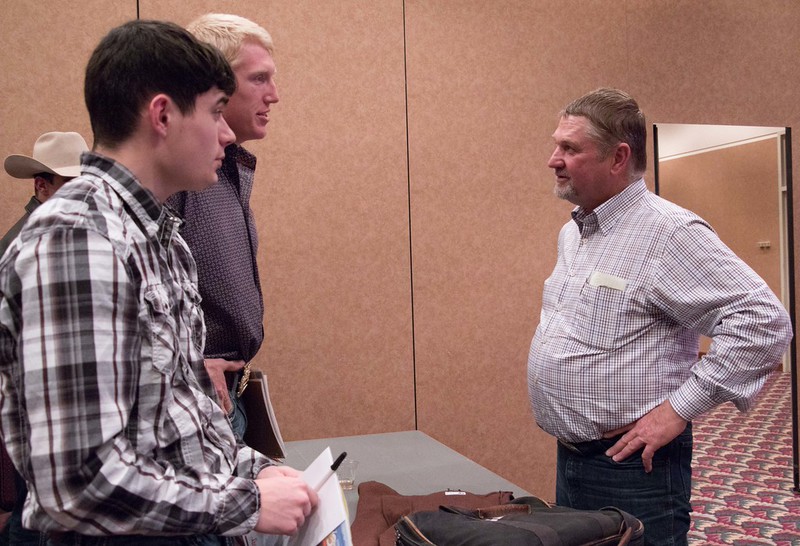Holistic Management expert, Gordon native speaks on campus

CHADRON – Mob grazing, carbon sequestration and plant diversity have been common threads among the Nebraska Grazing Lands Coalition (NGLC) programs at Chadron State College the past several years and this year’s speaker, Tony Malmberg, continued in that vein Monday night at a four-hour program in the Student Center
Dr. Ron Bolze, a Chadron State College applied science faculty member, also serves as NGLC coordinator and organizes an annual tour featuring grazing experts.
Malmberg is a native of the Nebraska Sandhills south of Gordon and manages eight ranches, including those in Hawaii, New Zealand, and in Oregon where he lives.
He began with a 2013 TED talk by Allan Savory, his business associate and mentor. The South African ecologist, environmentalist, president and co-founder of The Savory Institute spoke about desertification, the process of once productive land turning to desert. He reviewed an enormous blunder that he played a part in when 40,000 elephants were killed in his home country to prevent erosion and try to save plant forage. Savory also said burning grasslands doesn’t work.
Savory maintains the best approach for preserving and improving grasslands is for ranchers to simulate natural migratory herds of wildlife that roamed the land, trampling organic material or mulch, into the soil, defecating, urinating and moving on, leaving the soil enriched in their wake.
"There is only one option, I'll repeat to you, only one option left to climatologists and scientists, and that is to do the unthinkable, and to use livestock, bunched and moving, as a proxy for former herds and predators, and mimic nature. There is no other alternative left to mankind," he said.
Savory contends the carbon sequestered in soil using this technique could make a larger impact on climate change than any approach decreasing the burning of fossil fuels. Plus, mob grazing can result in grasslands producing 50 to 100 percent more plant life.
Malmberg, who is a professional associate of Savory’s, told the audience that increase has the same result as getting a free ranch.
In response to a question from an audience member, Malmberg said the traditional practice of rotating herds through pastures based on a calendar or seasons falls short of holistic management.
“Depending on the growth rate of your grasslands, you should be moving your herd every five to 10 days. In most cases, if cattle are still grazing in the same location for 15 days, they are killing the plants. Timing is the key for plant recovery and to avoid overgrazing. There are different solutions for different situations, but in the long run good grazing practices are mostly about stocking rates and stocking density,” he said.
CSC student Jeffrey Cover of Ashby said he liked how Malmberg explained Holistic Management and how he uses it.
“I thought it was very interesting that he could, over time, double his stocking rate on a ranch just by using Holistic Management. By doing what nature would do, he is using land for grazing to its full potential. I am sure that it would take a lot of time and effort to learn to have the results that he has had,” Cover said.
Like past NGLC speakers Gabe Brown and Burke Tiechert, Malmberg stressed the importance of ranchers cultivating productive human relationships with family members, employees, vendors and others.
Malmberg repeated his view that complexity, whether it be social, financial or economic, cannot be organized.
“Complexity can only be managed or influenced. Complexity self-organizes,” Malmberg said.
To help the attendees visualize the human, financial, skill and ecological resources they have available to manage, Malmberg provided blank asset inventory sheets and coached participants through completing them.
“You need to assess what you have and realize how you must behave so you can plan where you want your life to go,” he said.
Category: Campus Events, Campus News
